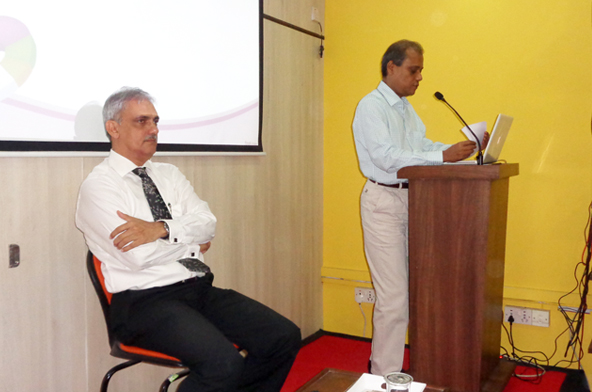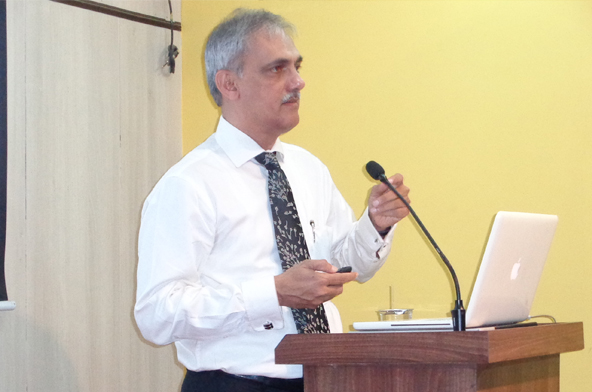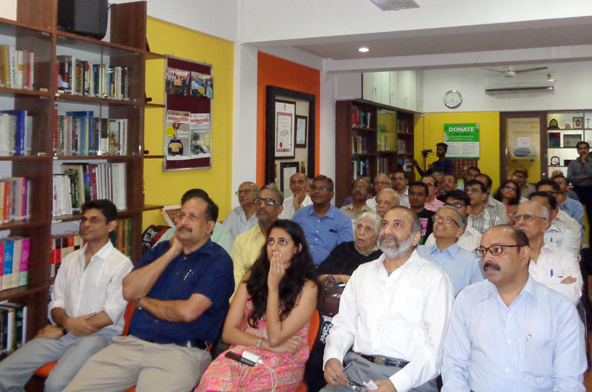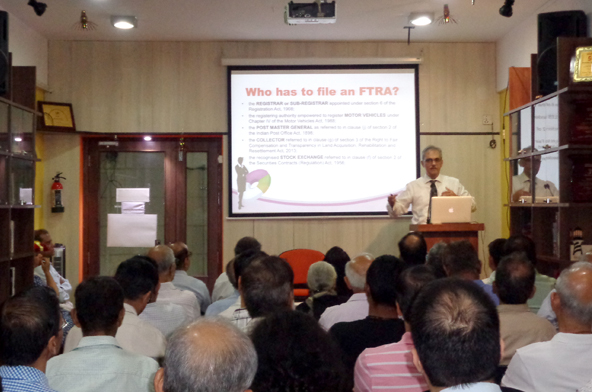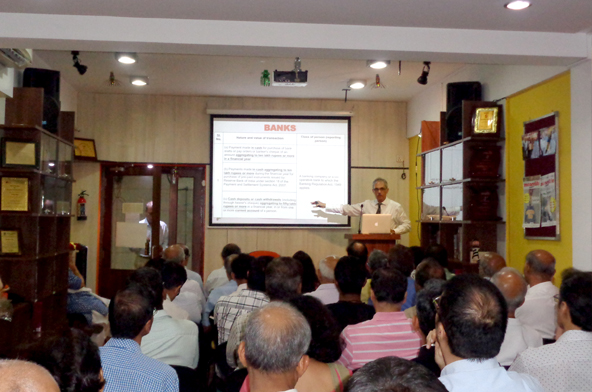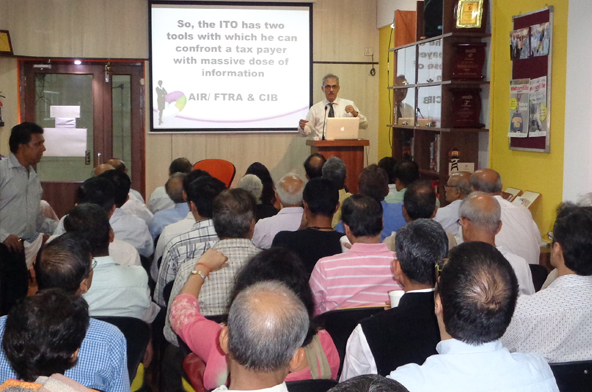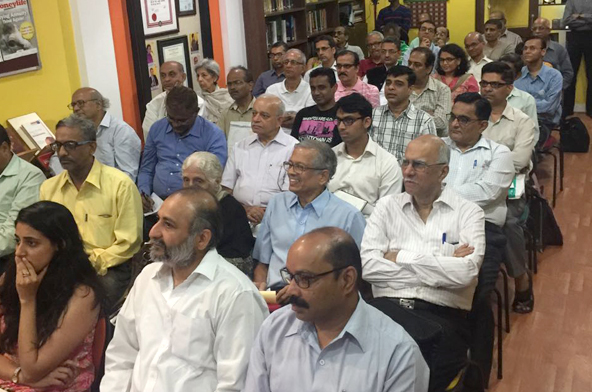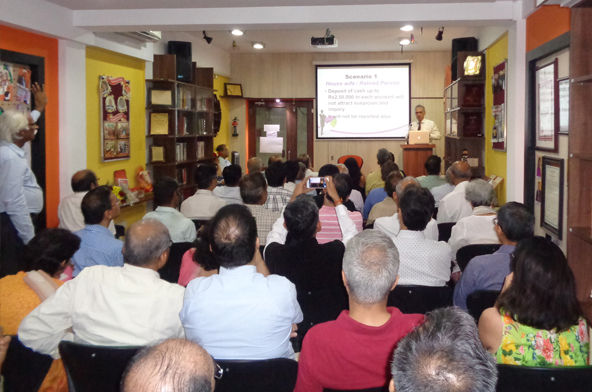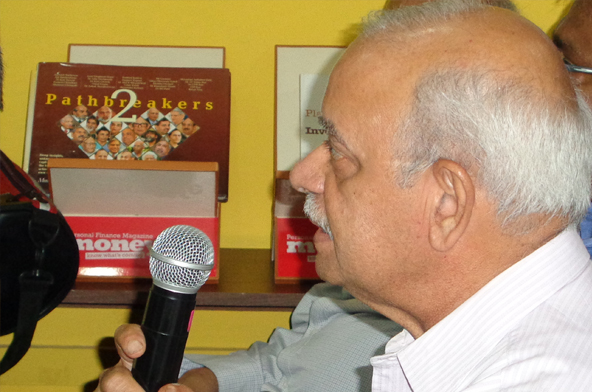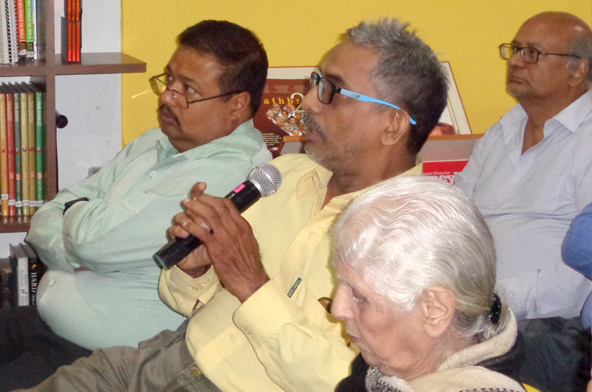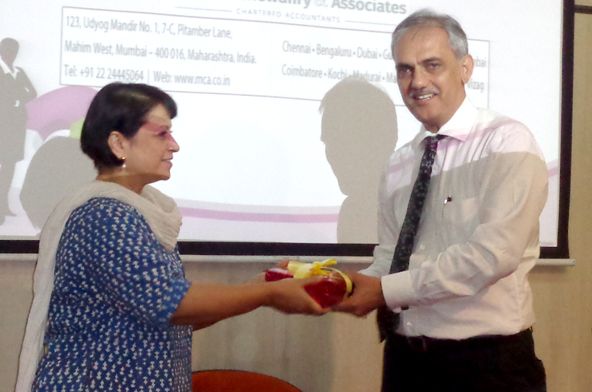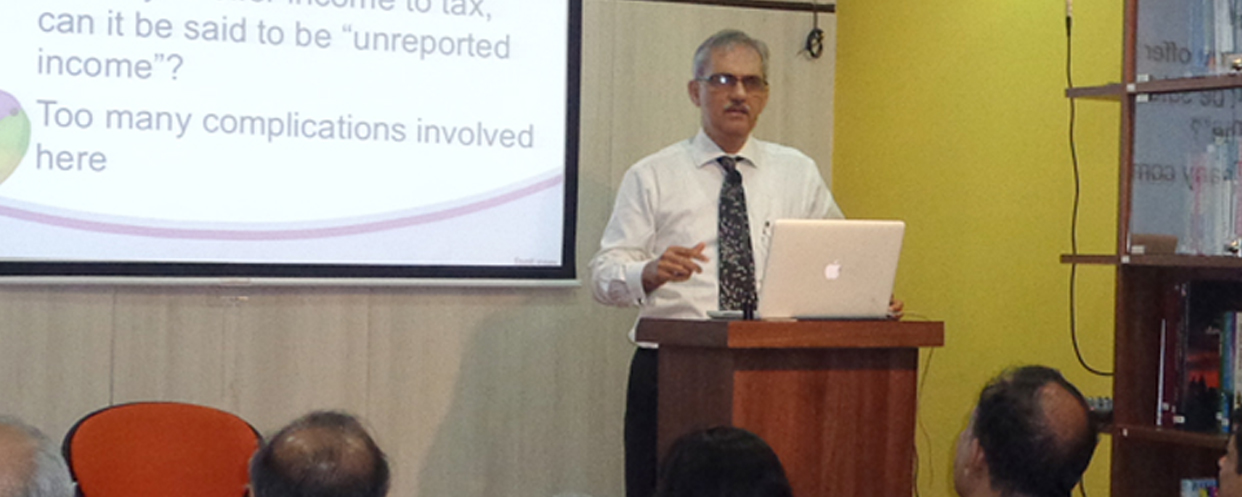
“To keep a watch on high value transactions undertaken by the taxpayer, the Income-tax law has framed the concept of statement of financial transaction or reportable account (FTRA) which was previously called as ‘Annual Information Report (AIR)’,” says Ameet Patel, a Chartered Accountant. He spoke about how the AIR cannot be ignored anymore.
Increasingly one cannot rely on tax consultants and understanding of how the information impacts one first hand is important.
He was speaking at a seminar-cum-guidance session on “The AIR is a big weapon in the hands of the tax officer” organised by Moneylife Foundation in Mumbai. He also spoke about the recent demonetisation of the currency and what it means to tax reporting of citizens.
He touched upon the entities that are required to file an FTRA. He cited the nature and value of transactions for which various entities like banks, post offices, NBFCs, companies, mutual funds must file an FTRA. He emphasized the need to disclose income and details to ones Chartered Accountants, as the chances of scrutiny based on details provided by third parties can get a person into trouble.
The practicing Chartered Accountant started his session by explaining the importance of AIR or FTRA as AIR is the key document that tax officers turn to for completing tax scrutiny.
Touching upon the importance to know about the Central Information Branch (CIB), he explained how CIB aids the widening of tax base through identification of stop filers and non-filers and the deepening of tax base by providing information for proper selection of cases for scrutiny assessments through collection, collation of information from internal as well as external sources and its dissemination to Assessing officers (AOs) and other users in I.T. Dept.
“So, the ITO has two tools with which he can confront a tax payer with massive dose of information the AIR or FTRA and CIB”, Mr Patel said. He further added that the ITO has information about the filer’s name, type and quantum of transaction and the source of income and misreporting or non-reporting of any could spell trouble for an assessee.
Ameet Patel then went on to explain how the AIR and CIB would impact assesses in two different scenarios. Namely, in case return of income is filed and in case return of income is not filed. He gave examples of assesses who have got notices from the IT Department and on whom scrutiny have been initiated. He also explained how responses to notices by the Department can be given online. The intelligence and efficiency of the officers was highlighted and he emphasized the need to be alert with disclosures by assesses.
He then touched upon the question on everybody’s mind and the source of major agony to most taxpayers, the demonetization of high currency notes. “Most households in the country would have a few of the high denomination notes which are now no longer legal tender. What to do with these notes? There are two aspects involved- depositing the money into the bank or exchanging it for new notes and the income-tax implications”, he said.
“However,” Mr Patel cautioned, “do not rush or take hasty decisions based on some posts on social media, WhatsApp or email messages. Please consult an honest tax consultant or Chartered Accountant and take his guidance about these things.”
While explaining the seriousness of the government in weeding out black money he gave the various tax implications for different individuals. He concluded the session with advising the audience to not panic and act in haste. He emphasized the need to think before depositing any money and to consult an honest tax consultant before taking any action. It is critical that people not rely on WhatsApp messages and media frenzy and believe and disseminate information from official sources.


